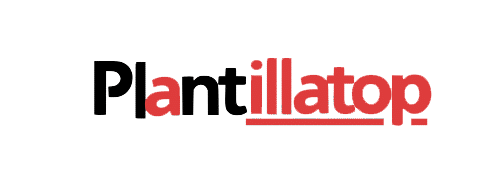In an age where every tweet, post, and comment can be scrutinised under the magnifying glass of public opinion, a fascinating trend is emerging in online culture: the rise of anonymous contributions. Welcome to “Anonposted,” where we delve into the intriguing world of hidden voices that challenge the status quo and redefine how we engage with digital content. From candid confessions to unfiltered critiques, anonymity has become a powerful tool for self-expression—allowing individuals to share their thoughts without fear of judgment or backlash. Join us as we explore this captivating phenomenon, uncovering its impact on creativity, community building, and even social movements. In a landscape dominated by curated personas and polished profiles, discover why being “unknown” might be the bravest way to speak your truth!
Introduction to Anonposted and its meaning in online culture
In the vast and ever-evolving landscape of online culture, a remarkable trend has emerged: anonposted contributions. These anonymous voices have carved out a unique space in digital conversations, allowing individuals to share thoughts, opinions, and creative works without revealing their identities. But what does it mean to be an anonposter? And how has this phenomenon transformed the way we communicate online? From artful expressions on forums to stirring debates that ignite social movements, anonymity is reshaping our interaction with content—and each other. As we delve deeper into this intriguing aspect of internet culture, we’ll uncover its history, benefits, drawbacks, and the ethical considerations that come with hiding behind a screen name. Join us as we explore the rise of anonposted content and its profound impact on today’s digital world.
The history of anonymous contributions on the internet
The roots of anonymous contributions on the internet stretch back to its early days. Forums and bulletin boards allowed users to share thoughts without revealing their identities. This promoted open discussions, encouraging individuals to express themselves freely.
As the web evolved, platforms like 4chan emerged in the early 2000s. Here, anonymity became a badge of honour for many users. It sparked creativity but also controversy.
With blogging platforms gaining traction, writers began penning articles under pseudonyms or anonymously. These voices often tackled sensitive topics that wouldn’t have been possible under their real names.
Social media introduced a new layer of anonymity through accounts stripped of personal details. Users found refuge in this digital cloak, enabling candid conversations across diverse communities.
Throughout these changes, the balance between freedom and accountability has remained precarious—shaping how we perceive content created in an anonymous space today.
The benefits and drawbacks of anonymity in online content
Anonymity in online content has its perks. It offers users the freedom to express their thoughts without fear of judgment. This can lead to open discussions on sensitive topics that might otherwise be silenced.
Yet, anonymity also harbours risks. The lack of accountability may encourage toxic behaviour and harassment. People sometimes feel emboldened to share harmful opinions or engage in cyberbullying, knowing they remain faceless.
Additionally, anonymous contributions can dilute credibility. When sources are hidden, it becomes challenging for readers to gauge trustworthiness. Misinformation can spread more easily when identities aren’t attached.
Despite these drawbacks, anonymity fosters creativity and experimentation. Writers can explore new ideas without being constrained by their public persona. This balance between expression and responsibility is crucial as we navigate the evolving landscape of online culture.
Famous examples of anonposted content and their impact
The internet is rich with famous examples of anonposted content that have left a significant mark on culture. One standout moment was the publication of “Behind the Bastards,” where anonymous contributors revealed shocking truths about public figures. This series sparked conversations around accountability and transparency.
Another instance is the rise of Reddit’s “Ask Me Anything” (AMA) sessions, where users anonymously engaged with celebrities, politicians, and experts. These interactions broke down barriers and created an intimate space for dialogue.
Anonymous contributions in forums like 4chan have also led to viral trends and memes, shaping online humour and social commentary. The impact of these platforms extends beyond entertainment; they often serve as catalysts for movements or societal change.
Each piece of anonposted content influences discourse by challenging conventional narratives while amplifying voices otherwise silenced in mainstream media.
The rise of anonymous social media platforms and their influence
Anonymous social media platforms have surged in popularity, offering users a refuge from identification. These spaces allow people to express thoughts freely without the weight of their real-world identities.
Platforms like Reddit and 4chan pioneered this shift, letting users share ideas or critiques without fear of backlash. This anonymity fosters bold conversations that might be stifled elsewhere.
However, it’s not all constructive dialogue. The veil of anonymity can breed toxicity and misinformation. Users may feel emboldened to engage in harassment or spread false narratives under the cloak of invisibility.
Despite these challenges, anonymous platforms encourage community building around shared interests rather than personal identity. They unite diverse voices who contribute unique perspectives on societal issues.
As more individuals gravitate toward these spaces, understanding their influence becomes crucial for navigating online culture effectively.
How anonymity has shaped online discourse and community building
Anonymity has profoundly transformed online discourse. It allows individuals to express thoughts without the weight of their identity.
This freedom encourages open conversations about sensitive topics. People share experiences and opinions they might otherwise keep hidden. This openness fosters empathy and understanding within communities.
In many cases, anonymity enables marginalised voices to rise above mainstream narratives. These contributions can challenge societal norms and prompt critical discussions on important issues.
However, it also invites challenges such as misinformation or negative behaviour. Users may feel emboldened to engage in harmful conduct when shielded by a pseudonym.
Despite these drawbacks, anonymous platforms have cultivated vibrant subcultures. They create spaces where individuals connect based on shared interests rather than personal identity.
Through this lens, anonymity serves as both a catalyst for connection and a double-edged sword in shaping our digital interactions. Each contribution adds complexity to the evolving landscape of community building online.
Ethical considerations surrounding anonymous contributions
Anonymity can empower voices that might otherwise go unheard. It allows individuals to share opinions, experiences, and insights without fear of backlash. This freedom fosters open dialogue on sensitive topics.
However, the ethical implications are significant. An anonymous platform can also be a breeding ground for misinformation and harmful behaviour. Without accountability, users may feel emboldened to spread falsehoods or engage in harassment.
Moreover, the line between protecting privacy and enabling harmful actions blurs quickly. Ethical guidelines are needed to navigate this complex landscape responsibly.
Content creators must consider their impact on communities when choosing anonymity as a shield. Balancing the right to speak freely with the responsibility of truth-telling is essential in fostering healthy online environments.
Ultimately, society must grapple with these tensions as it embraces anonposted contributions while striving for integrity in digital spaces.
Future implications for anonposted in the digital age
The future of anonposted content is poised for significant evolution as technology advances. With the rise of artificial intelligence, we may see a shift in how anonymity is maintained and protected online. Enhanced encryption methods could safeguard identities while facilitating open dialogue.
Social media platforms are already testing new features that allow users to share thoughts without revealing their real names. This trend might encourage more people to express themselves freely, contributing to diverse conversations.
However, this freedom comes with challenges. The potential for misinformation and harmful behaviour increases when accountability decreases. Moderation becomes essential to preserve community integrity.
Emerging technologies like blockchain could provide innovative solutions by creating permanent records tied to anonymous contributions while ensuring transparency. As society navigates these changes, understanding the balance between privacy and responsibility will be crucial in shaping the landscape of anonposted content moving forward.
Conclusion: A call for responsible use of anonymity in online culture
The digital landscape is evolving, and the rise of anonposted contributions has added a complex layer to our online interactions. As anonymity continues to shape conversations and communities, users must reflect on the implications of their actions.
Anonymity can empower individuals to share honest opinions without fear of judgment or backlash. However, this freedom also carries significant responsibilities. Users must recognise the potential consequences of their words and how they impact others in real-time.
Engaging anonymously should not equate to behaving irresponsibly. Each contribution—whether positive or negative—shapes collective discourse and influences community dynamics. Encouraging transparency while maintaining privacy could lead us toward healthier discussions.
As we navigate these murky waters, fostering a culture that values responsible use of anonymity becomes essential. It will require thoughtful consideration from all participants in online dialogues, ensuring that celebrating free expression does not come at the cost of compassion and accountability.
Striking this balance may well define the future trajectory of anonposted content in our digital age—a realm where voices can be heard without sacrificing integrity.

